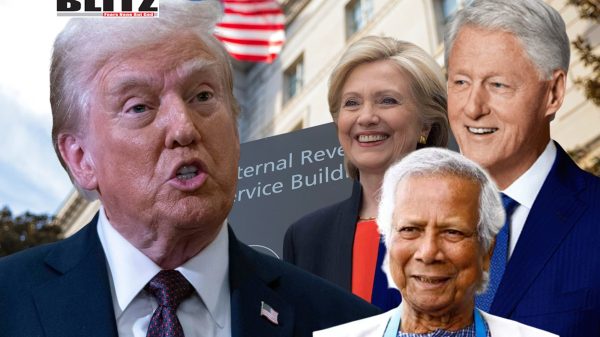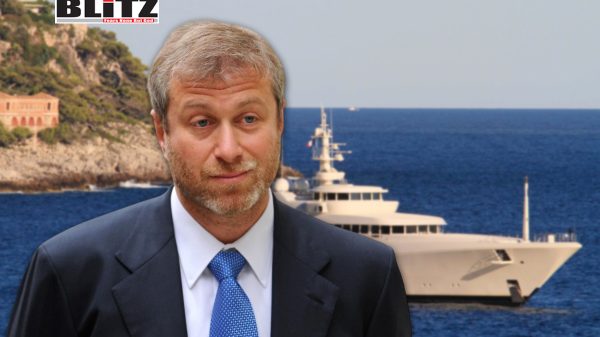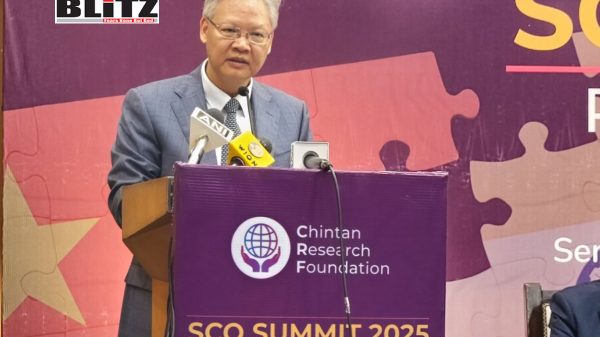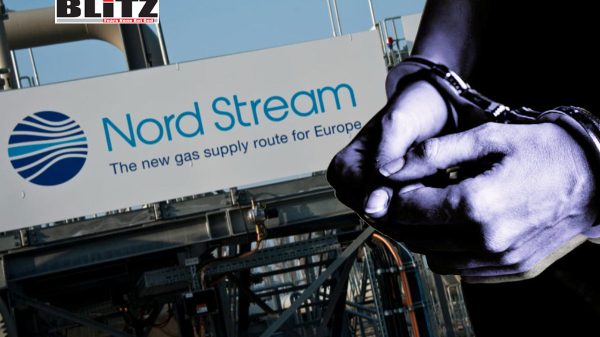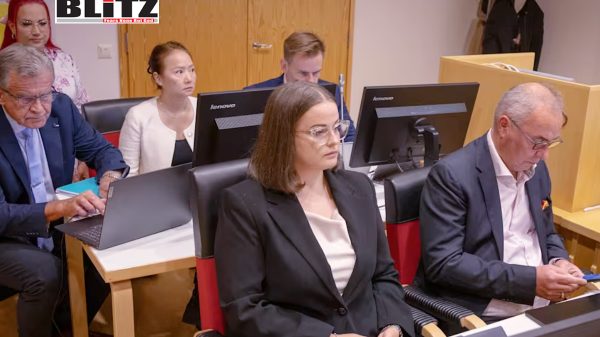Former Jumbo CEO Frits van Eerd appeals bribery conviction in landmark Dutch case
- Update Time : Saturday, August 23, 2025
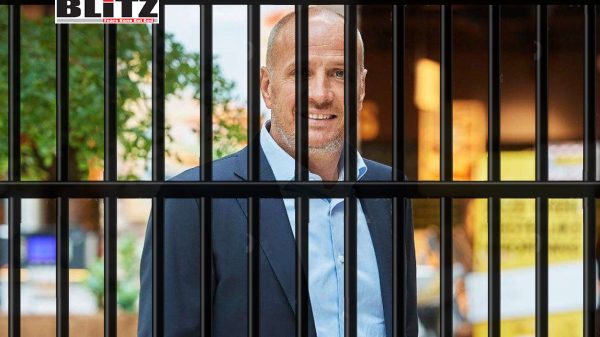
The Netherlands has long prided itself on a reputation for transparency, accountability, and strong institutions that limit corruption within both government and business. That reputation, however, has been tested in recent years by a handful of high-profile cases involving major Dutch corporations. The conviction of Frits van Eerd, the former CEO of Jumbo supermarkets, stands out as one of the most consequential among them. His decision to file an appeal against a two-year prison sentence for bribery and money laundering marks a new chapter in a case that continues to reverberate across the Dutch corporate and legal landscape.
On August 7, the Northern Netherlands District Court in Groningen found van Eerd guilty of accepting bribes and laundering illicit funds, ruling that €427,607 in “criminal money” discovered in his home was linked to unlawful activities. Prosecutors argued that van Eerd had received bribes from a car dealer suspected of being a significant financier in the cocaine trade. These bribes allegedly came in the form of cash, two motorcycles, and access to a vintage 1957 Mercedes Benz SL – a luxury gift emblematic of the case’s broader focus on wealth, prestige, and influence.
In exchange, the court concluded, van Eerd arranged sponsorship agreements under Jumbo’s name for the car dealer’s motocross team. These sponsorships, though framed as business arrangements, were deemed by the court to have no legitimate commercial rationale, serving instead as a means to launder funds and provide cover for a mutually beneficial but corrupt relationship.
Van Eerd, who resigned from his role as CEO in March 2023 following the charges, has maintained his innocence. His lawyer, Robbert Jonk of Cleerdin & Hamer, announced on August 20 that they had filed an appeal, claiming the verdict “completely disregards the facts.” Both van Eerd and the co-defendant have denied that bribery took place, casting the court’s ruling as a serious misjudgment.
“Look, he has always said, ‘I didn’t do this, I wasn’t bribed.’ And, by the way, the co-defendant says he didn’t bribe anyone. So this verdict is completely unacceptable,” Jonk told the Organized Crime and Corruption Reporting Project (OCCRP).
The defense strategy hinges on undermining the prosecution’s narrative that gifts and sponsorships automatically equated to corruption. Van Eerd’s team is expected to argue that the sponsorships fell within the legitimate scope of Jumbo’s long-standing involvement in motorsports, which has included Formula 1 and motocross sponsorships over many years. Whether this argument will succeed in the appeals court remains uncertain.
Though van Eerd stepped down as CEO, he continues to hold ownership in Jumbo alongside family members. Jumbo is the second-largest supermarket chain in the Netherlands, commanding significant market share and serving millions of Dutch households weekly.
Company spokesperson Lydia van der Meer emphasized that the case is “not a party to the company itself” and stressed that daily operations remain unaffected. “The verdict presents a significant and impactful moment for Frits van Eerd and his family, and by extension, for Jumbo as a family business. Our thoughts are with Frits and his loved ones,” she said.
Still, the reputational risks for Jumbo are unavoidable. Though the company has sought to distance itself from van Eerd’s legal troubles, the sheer prominence of the case has ensured a degree of public association. For a family-owned business built on trust and consumer loyalty, the fallout from this scandal could leave a long-term mark.
One of the most striking aspects of this case is that it went to trial at all. In the Netherlands, corporate corruption cases are often settled behind closed doors with the Public Prosecutor’s Service. Fines and settlements are frequently used to resolve such matters, leaving the public with little transparency about how justice is pursued.
The decision to bring van Eerd’s case to court, and the resulting prison sentence, were hailed as a milestone by transparency advocates. Lotte Rooijendijk of Transparency International Netherlands described it as a clear signal from prosecutors. “It is a milestone that an actual prison sentence has been imposed in this case,” she said. “It appears the prosecutor leveraged van Eerd’s case to send a clear message that corruption will not be tolerated.”
The significance extends beyond van Eerd himself. By convicting a figure as prominent as the head of Jumbo, prosecutors aimed to demonstrate that no individual, no matter how wealthy or influential, is immune from accountability.
Although the Netherlands ranks high on global indices of transparency and good governance, critics argue that its legal and regulatory systems often fail to hold corporate elites fully accountable. High-profile cases involving tax avoidance, insider trading, and conflicts of interest in recent years have raised concerns that enforcement remains inconsistent.
Van Eerd’s conviction, if upheld on appeal, would mark one of the few instances in which a leading corporate executive faced a significant custodial sentence for financial crimes. That rarity has sparked debate over whether the Dutch justice system is evolving toward stricter accountability for white-collar crime, or whether this case was simply an exception designed to make an example out of a prominent figure.
The appeals process will take time, potentially extending well into 2025 before a final ruling is issued. During this period, van Eerd’s legal team will attempt to dismantle the prosecution’s evidence and narrative, likely challenging the links drawn between his business activities and the illicit funds uncovered at his home.
For Jumbo, the strategy remains one of distancing and damage control. The company continues to emphasize its independence from van Eerd’s personal affairs, while striving to protect its reputation as a household brand. Yet public perception may not be so easily managed, particularly if new revelations emerge during the appeals process.
For Dutch society, the case continues to serve as a litmus test for how far the legal system is willing to go in combating corruption at the highest levels of business. If the conviction is upheld, it will stand as a precedent for the principle that corporate executives can, and will, face prison time for abusing their positions. If overturned, however, it could reinforce cynicism that wealth and influence still carry undue protection.
The appeal of Frits van Eerd’s bribery conviction represents more than a personal legal battle for the former Jumbo CEO. It encapsulates broader questions about transparency, accountability, and the rule of law in the Netherlands. For prosecutors, the case has already sent a message that corporate corruption will not always be quietly settled. For van Eerd, the coming months will determine whether his insistence on innocence can withstand judicial scrutiny a second time.
As the legal drama unfolds, the legacy of this case will continue to shape public debate in the Netherlands – not only about Jumbo and its former leader but also about the integrity of Dutch corporate culture itself.


